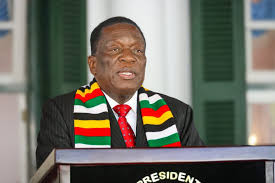
THE youth are standing at a crossroads — not by choice, but because those in power have left them with no path forward.
With a staggering 1,4 million young people not in employment, education or training, the silence and inaction from the corridors of power is both deafening and damning.
Instead of crafting policies to empower this vital demographic, the ruling elite is preoccupied with amassing unexplained wealth, while social sectors — health, education and transport — crumble.
In the education sector, teachers’ colleges and universities continue to churn out graduates who face a dead-end upon completion. Public hospitals have become death traps.
The second republic continues to make promises, yet the realities on the ground reveal no meaningful investment or job creation.
The billions of United States dollars reported in the State-controlled media remain invisible in communities where despair is growing.
Worse still, the decision to increase the pensionable age to 70 years further blocks the already narrow job pipeline for youths.
United Nations resident and humanitarian co-ordinator in Zimbabwe, Edward Kallon, recently said the statistics on unemployment among the youths are disturbing.
- Councils defy govt fire tender directive
- Bulls to charge into Zimbabwe gold stocks
- Over 115 to exhibit at Mine Entra
- Bullets shoot down Chiefs
Keep Reading
He said with the youth making up over 67% of the population, the country’s future “depends on unlocking their potential”.
Mnangagwa must urgently realise that job creation for the youths is not a favour but an obligation by the State to capitalise on the demographic dividend. Anything short of that would turn into a demographic bomb.
Across the country, millions of young people roam the streets with certificates in hand, but no jobs in sight. This growing crisis has not only shattered dreams but is fuelling a surge in drug abuse, crime and hopelessness.
Many youths have never experienced formal employment in their lives.
They are growing older in poverty, with no income, no savings and no prospects for the future.
This is not just an economic issue — it is a national emergency. A country that fails to empower its youth is a country that fails to secure its future.
The Mnangagwa-led government must stop treating employment as a privilege for the connected few and instead roll out serious, transparent and inclusive policies aimed at absorbing the youth into productive sectors.
Vocational training, industrial revival, support for small businesses and incentives for local investors must be fast-tracked — not just talked about.
Creating jobs is not a political slogan. It is a key ingredient in national stability and growth.
If nothing changes, the country risks losing an entire generation — not to emigration or unemployment alone, but to drug abuse, hopelessness, and systemic neglect.
The youths must not be used as cannon fodder in election campaigns. They need a seat at the table.
The government must act — not with words, but with clear, transparent and youth-focused policies — before it's too late.
The time to act is now.






